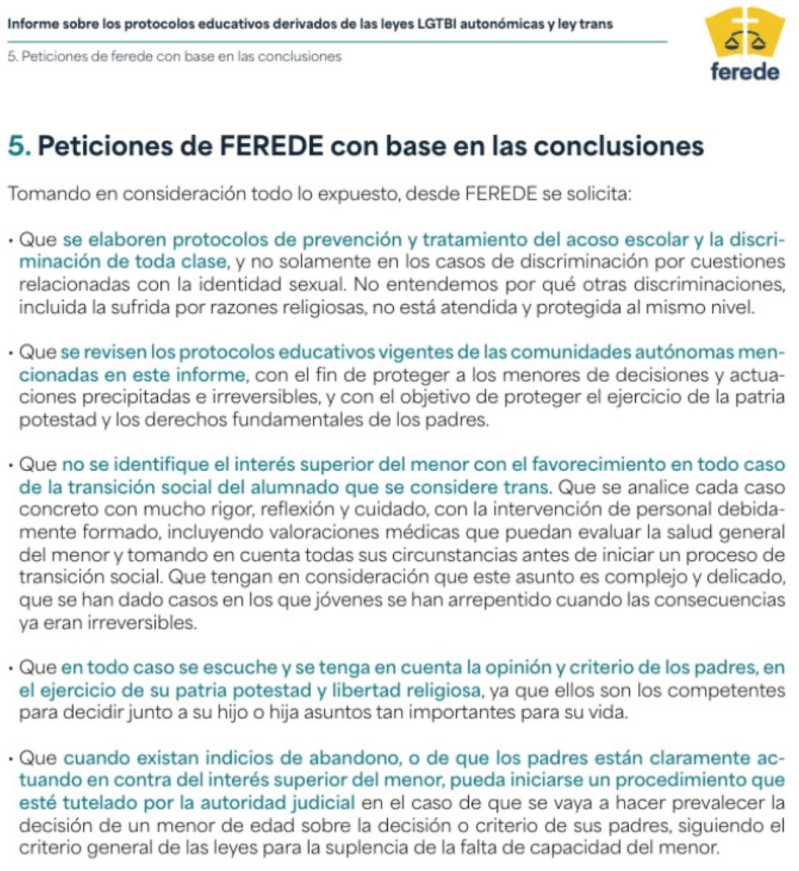The Spanish Federation of Evangelical Religious Organizations (Ferrede) has published a detailed report on educational protocols derived from the local LGBTI laws and Spanish trans laws. This document analyzes the impact of these regulations on the parent’s right to educate their children according to the exercise of parental authority and in accordance with convictions.
The report highlights that education protocols have been implemented to support minors identified as transgender in at least 14 autonomous communities. In most cases, these protocols allow students to start without parental consent, creating important controversies about family rights.
One of the most sensitive aspects of ferrede analysis is the possibility that teachers or education centers can initiate protocols without parental involvement. In communities such as Aragon, La Rioja and Navara, the report warns that refusal for parents to accept the child’s transition could lead to social services intervention and view opposition as a form of ignoring or abuse.
Another concern is the lack of medical or psychological evaluation before the activation of the protocol. According to the report, in most autonomous communities, no professional assessment is required to determine whether minors are in a position to determine gender identity. This, according to the report, could lead to an irreversible process that has unknown consequences for children’s development.
“We tend to identify social transitions with the greatest benefits of children, assuming that social transitions are always positive and beneficial for minors who show signs of disagreement with their gender, without considering the key impacts that a process of this nature can have on minors,” the report states.

The report cites warnings from several international healthcare organizations regarding the adverse effects of hormone blockers and other treatments used in the minor transition process. However, in Spain, Ferede said the current trend is to promote these processes with fewer requirements, allowing minors to self-determination of gender without thorough evaluation.
In conclusion, Ferede is seeking a review of the current protocol. It emphasizes the need for parental consent and evaluation by healthcare professionals prior to intervention. The organization also urges schools to respect and act in respect of the rights of families in their children’s education.
The report rekindled debates on the issues of gender identity and the role of education in minority autonomy, capturing people who advocate for self-determination against those seeking stronger parental involvement in the process.
See the full report (in Spanish).
It was originally published by Diario Cristiano, the Spanish version of Christian Daily International.
